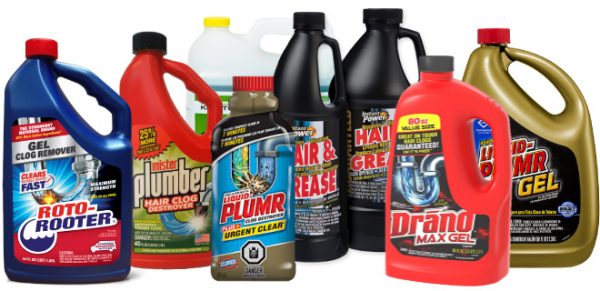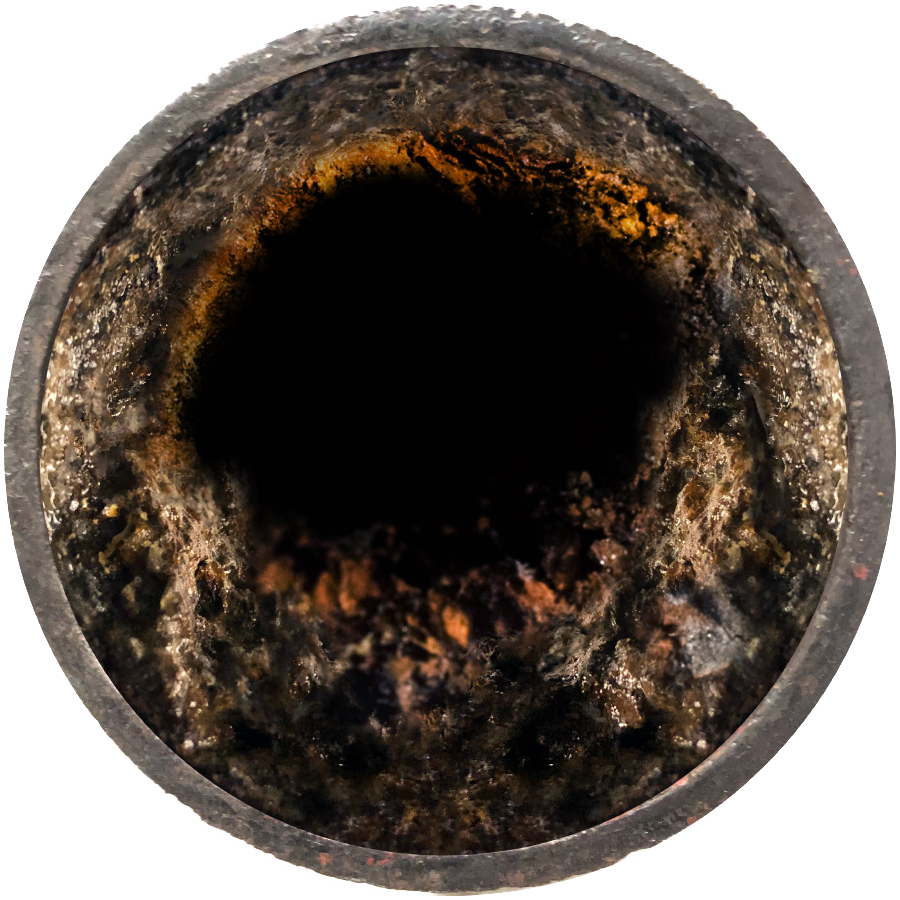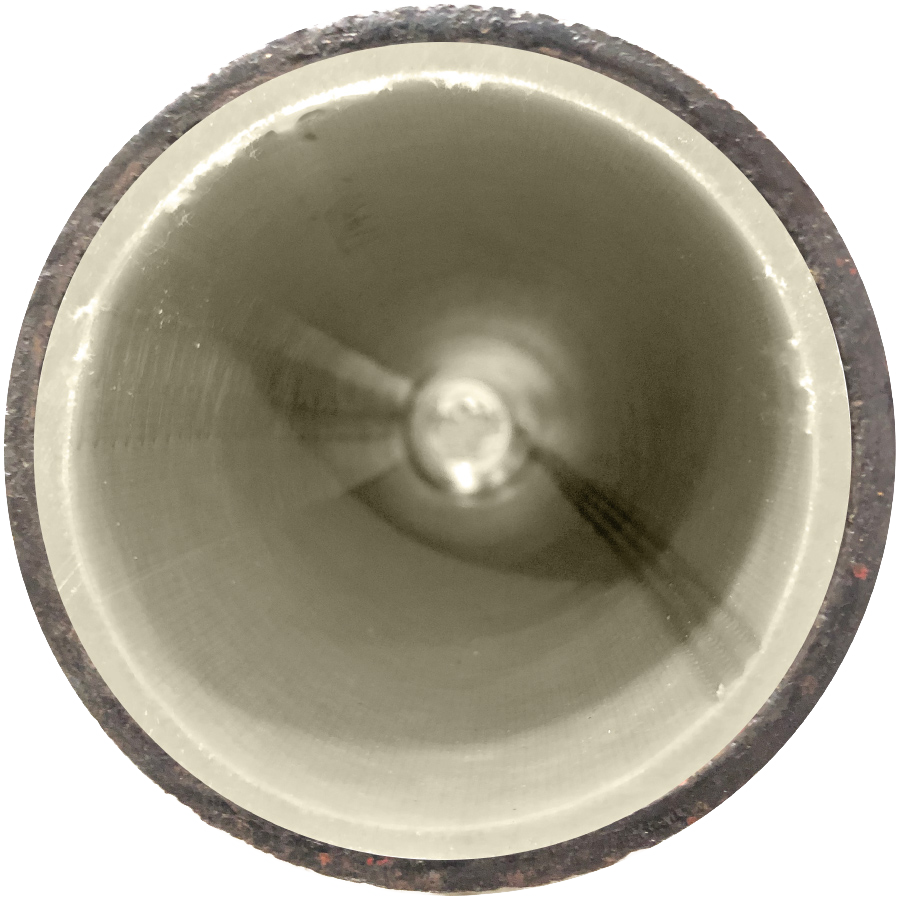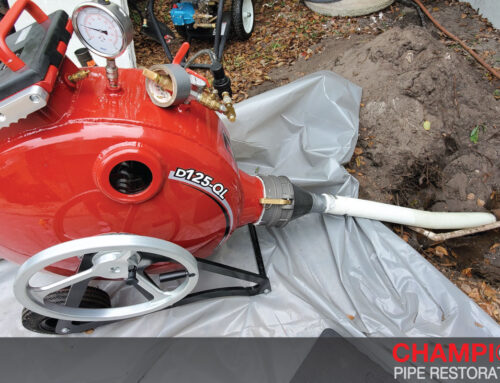Did you know… using Drain Cleaners may actually damage your pipes?

Common household and industrial drain cleaners work by dissolving away clumps of hair, grease, fats, soap films, oils, and other wastes that build up in your pipes by using harsh chemicals and strong acids that chemically eat away and dissolve them. This is why the warning labels on drain cleaners are so clear about avoiding skin contact…they will dissolve your skin too. Unfortunately these same chemicals and acids often react with and damage the pipes and joint seals that make up sewer plumbing.
When strong acids come in contact with rubber couplings and sealing gaskets, they often degrade the elasticity of the material which eventually leads to leaks and opens up the system to intrusion by roots and groundwater.
In the case of steel or cast-iron pipes, the long term damage can be especially severe. When strong acids react with iron in steel and cast-iron pipes, they destabilize the molecular integrity of the metal by stripping away electrons through a process called oxidation. The oxidation of iron forms iron oxide (Rust!). As the pipe surface rusts, microscopic cracks and channels expose the underlying metal to moisture and the elements. More rust.
Drain cleaners kick-start and accelerate the vicious cycle of corrosion and flaking that greatly accelerates the natural degradation of steel and cast-iron pipes. Ironically, the very grease and oils that the drain cleaner seeks to strip away normally serve to protect pipes by coating the surface and reducing contact with air and moisture.
So what’s the solution?
The first question to be asked is… “Why are clogs forming in the first place?”
Sure…your daughter, wife, husband, dog, etc. may seem to shed like a Wookie in the shower at times, but aside from yucking up the shower strainer, most properly designed (code compliant) sewer systems should have no trouble conveying such solids down the line to septic or city sewers. Something is causing things to get caught up. If the house is newer, you may have a deficient design, unknown damage (your neighbors new flag pole went right through your lateral sewer line), or something may have somehow gotten into a pipe that shouldn’t be there (that set of keys you lost really got flushed down the toilet by your 3 year old). If the house is older or has cast-iron pipes, there’s a good chance corrosion is a factor. Tuberculation (flaky rust) may be building up and restricting flow. Hair loves getting caught on Tuberculation and fats, food, and grease love getting stuck on hair.
Ultimately the best thing you can do is get a video inspection of the afflicted pipe. This way you know definitively what’s going on inside.
Once you have eyes on the problem, you can choose your next course of action. You may find that you can get away with just snaking or milling the pipe to remove the clog and any buildup of Tuberculation. If the condition of the pipe is poor or failure is immanent, it may be time to start considering restoration before the problem gets worse or repeated clogs cause more disruption.
But what if I’m just dying to use drain cleaner?
While it would be advisable to avoid drain cleaners altogether, if you must use drain cleaner, be sure to follow the manufacturer’s instructions closely…especially the part about running water through your drains after the recommended waiting period. It’s extremely important to flush away as much of the acids and chemicals as possible. It’s a good idea to fill bath tubs and sinks and then quickly pull the plug to cause a higher than normal volume of water to flush through the system when you rinse. The goal is to rinse residual drain cleaner that may be sticking to the normal high water line inside your pipes. Any drain cleaner left behind will continue to react with whatever it’s in contact with.
Additional Resources
What does pipe lining cost?
Your Content Goes Here Answer: Pipe lining typically costs between $110 and $250 per foot of pipe lined. We get asked this question over the phone all the time. There are a lot of [...]
For Condominium, Commercial, High-Rise, and Industrial Projects, we may be able to service you. Please send us a message.
Champion Pipe Restoration saves its customers thousands of dollars by providing lasting pipe renewal services without the mess and disruption of traditional remove and replace methods. Our experienced technicians will extend the life of your pipes by installing new composite pipes inside of your existing failing pipes. The newly created pipe within your pipe is more durable than PVC and has a design life of 50 years or more.




